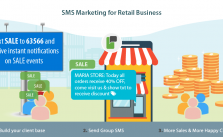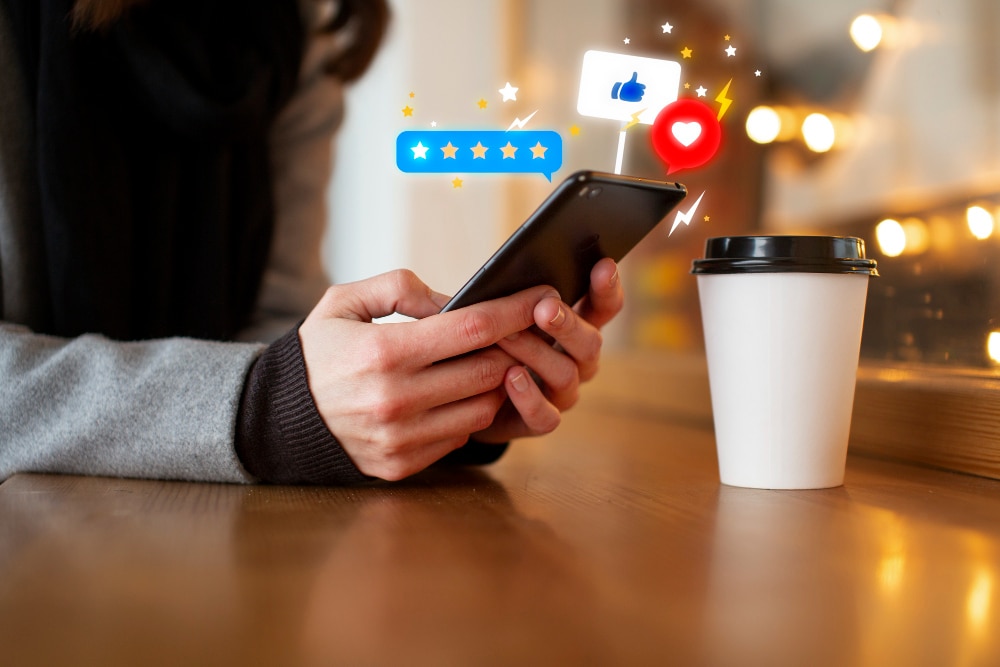Table of Contents
- 1. What is SMS Marketing Automation?
- 2. Why SMS Marketing is So Effective?
- 3. The Multifaceted Benefits of SMS Marketing Automation
- 4. How Brands Are Leveraging SMS Marketing Automation
- 5. Integrating SMS Marketing with Other Channels for Maximum Impact
- 6. Best Practices for Successful SMS Marketing Automation
- 7. Future Trends in SMS Marketing Automation
- Final Reflections
In today’s hyper-competitive digital landscape, brands must be agile, responsive, and innovative to capture their audience’s attention. Traditional marketing methods no longer suffice; modern consumers expect personalized, timely, and engaging communications. SMS marketing automation has emerged as a powerful tool that meets these demands. Combining the effectiveness of SMS with the efficiency of automation, it offers marketers a direct line to their customers, enhancing engagement, driving conversions, and ultimately transforming the way brands operate.
Today, we’ll explore how SMS marketing automation is changing the game for brands and marketers, the strategies they use, and what the future holds.
1. What is SMS Marketing Automation?
SMS marketing automation involves using software platforms to send text messages automatically to customers or prospects based on pre-set criteria or triggers. Unlike mass texting, which sends the same message to a broad audience, SMS automation uses customer data and behavior insights to deliver highly personalized messages at optimal times.
- Dynamic Content: Messages are crafted using customer data, such as past purchases, browsing behavior, and location, to make content more relevant and engaging.
- Trigger-Based Messaging: SMS automation can send messages based on specific customer actions or milestones, like signing up for a newsletter, purchasing, or celebrating a birthday.
- Multi-Step Campaigns: Automated workflows allow for multi-step campaigns that nurture leads over time, moving them through the sales funnel with carefully timed messages.
SMS marketing automation provides the tools to engage customers in meaningful ways while freeing marketers from repetitive tasks.

2. Why SMS Marketing is So Effective?
The effectiveness of SMS marketing comes down to one simple fact: people are attached to their phones. On average, a person checks their phone 58 times a day. With such constant usage, SMS marketing is a direct and efficient way to reach consumers. Let’s explore the key reasons why SMS marketing outperforms many other channels:
- Unmatched Open Rates: SMS boasts a staggering 98% open rate, far exceeding the average email open rate of 20%. Most texts are read within minutes, making it ideal for time-sensitive messages.
- Higher Response Rates: Response rates for SMS can be as high as 45%, compared to 6% for email. Customers tend to respond faster and more frequently to text messages.
- Ubiquity and Accessibility: Nearly everyone owns a mobile phone, and SMS does not require internet access, apps, or specific devices, ensuring broad reach across different demographics.
- Trust and Directness: SMS is perceived as more personal and less intrusive than other forms of marketing, particularly because it comes directly to the user’s primary device.
3. The Multifaceted Benefits of SMS Marketing Automation
SMS marketing automation offers a wide range of benefits that help brands connect with customers more effectively and achieve their marketing goals:
3.1 Cost-Effective Marketing
SMS marketing is cost-effective, especially when automated. The cost per message is relatively low, and automation ensures that every message reaches its intended recipient without requiring manual intervention.
- Reduced Labor Costs: Automated SMS campaigns save time and resources by eliminating the need for manual sending and follow-up.
- Maximized ROI: SMS marketing ensures a high return on investment by targeting customers with relevant messages at optimal times.
3.2 Boosting Sales and Conversions
SMS marketing automation directly impacts sales and conversions by delivering targeted messages encouraging immediate action.
- Limited-Time Offers: Sending flash sale alerts or limited-time discounts via SMS creates a sense of urgency, driving quick purchases.
- Cart Abandonment Recovery: Automated reminders can nudge customers to complete their purchases, significantly recovering potential lost sales.
- Upselling and Cross-Selling: By analyzing customer purchase history, brands can send tailored product recommendations, boosting average order values.
3.3 Enhancing Customer Retention and Loyalty
SMS automation is critical in fostering customer loyalty and retention through regular engagement.
- Personalized Content: Sending birthday wishes, anniversary greetings, or customized offers makes customers feel valued and appreciated.
- Loyalty Programs: Automated messages inform customers about loyalty points, exclusive offers, and upcoming events, increasing repeat purchases.
- Proactive Customer Service: Automated alerts for order confirmations, shipping updates, and customer support information ensure customers remain informed and satisfied.
3.4 Streamlining Marketing Operations
Automation streamlines the entire marketing process, allowing teams to focus on strategy and creative aspects.
- Consistent Messaging: Pre-scheduled messages ensure consistent communication across all customer touchpoints, enhancing brand coherence.
- Data-Driven Decisions: Automation tools provide valuable insights into campaign performance, customer behavior, and preferences, helping marketers refine their strategies.
- Scalable Marketing: Brands can effortlessly scale their marketing efforts, reaching thousands of customers without sacrificing personalization.
4. How Brands Are Leveraging SMS Marketing Automation
Brands across various industries are using SMS marketing automation to achieve impressive results. Here are some real-world examples:
4.1 E-commerce: Cart Abandonment Campaigns
E-commerce brands like Amazon and Shopify-powered stores use SMS reminders to recover abandoned carts. A well-timed SMS can remind customers of their abandoned items and offer a small discount or free shipping, increasing the chances of conversion.
4.2 Retail: Flash Sales and Promotions
Retailers like Macy’s and Zara leverage SMS automation for flash sales, exclusive discounts, and new arrivals. These time-sensitive messages encourage customers to act fast, driving foot traffic and online sales.
4.3 Hospitality: Reservation Reminders and Updates
Hotels and restaurants use SMS automation to send reservation confirmations, reminders, and special offers. For example, Marriott Hotels sends guests a welcome message upon check-in, followed by local dining recommendations.
4.4 Healthcare: Appointment Scheduling and Reminders
Healthcare providers use SMS to remind patients of upcoming appointments, reducing no-shows and enhancing patient engagement. Automated messages can also provide important health tips and updates.

4.5 Financial Services: Alerts and Notifications
Banks and financial institutions use SMS to send transaction alerts, balance updates, payment reminders, and fraud detection. Automated SMS ensures that customers receive real-time, critical information.
5. Integrating SMS Marketing with Other Channels for Maximum Impact
For optimal results, brands integrate SMS marketing automation with other channels to create a seamless omnichannel experience.
5.1 Email and SMS
Combining email and SMS marketing enhances customer engagement. For instance, a brand might email detailed product information and send an SMS reminder to check out the offer. This multi-channel approach reinforces the message and increases conversion rates.
5.2 Social Media and SMS
Social media campaigns gain traction when paired with SMS marketing. Brands use SMS to notify subscribers about live streams, contests, and special events happening on social media platforms, driving more traffic and engagement.
5.3 In-App Messaging and SMS
Apps and SMS work together to guide customers through the purchase journey. For example, when a customer browses an in-app product but does not purchase it, an SMS reminder can prompt them to complete the transaction, increasing sales.
6. Best Practices for Successful SMS Marketing Automation
To maximize the impact of SMS marketing automation, brands should adhere to the following best practices:
6.1 Obtain Clear Consent
Always obtain explicit consent before sending SMS messages. This is not just a legal requirement but also builds customer trust, ensuring they welcome your messages.
6.2 Keep Messages Short and Clear
Given the character limits and the nature of SMS, keep messages concise, clear, and actionable. Use straightforward language and include a clear call-to-action (CTA).
6.3 Personalize at Scale
Personalization goes beyond using a customer’s name. Use dynamic fields to tailor content based on customer behavior, location, and preferences. Automated tools can segment audiences and create personalized campaigns at scale.
6.4 Time Your Messages Wisely
Timing is crucial in SMS marketing. Send messages when your customers are most likely to engage, such as mid-morning or late afternoon. Avoid sending messages during odd hours, as this could lead to opt-outs.
6.5 Monitor and Optimize Performance
Regularly track key performance indicators (KPIs) like open rates, click-through rates, conversion rates, and opt-outs. Use this data to refine your messaging, timing, and targeting strategies.
7. Future Trends in SMS Marketing Automation
The world of SMS marketing automation continues to evolve. Here are some emerging trends to keep an eye on:
7.1 AI-Powered Personalization
Artificial Intelligence (AI) will take personalization to the next level by more accurately predicting customer behavior and preferences. This allows for even more tailored messaging, boosting engagement and conversion rates.
7.2 Rich Communication Services (RCS)
RCS is the next generation of SMS, supporting features like rich media (images, videos, and interactive buttons), delivery and read receipts, and secure messaging. This will make SMS more engaging and versatile.
7.3 Conversational SMS
Two-way messaging will become more prevalent, allowing customers to engage in real-time conversations with brands. This shift will create a more interactive and personalized customer experience, enhancing loyalty and satisfaction.
7.4 Advanced Analytics and AI Integration
With advanced analytics, brands can gain deeper insights into customer behavior, message performance, and campaign effectiveness. This data-driven approach will enable more precise targeting and optimized marketing strategies.

Final Reflections
SMS marketing automation is not just a trend; it’s a strategic approach redefining how brands communicate with their audiences. With its unparalleled open and response rates, cost-effectiveness, and ability to deliver highly personalized and timely messages, SMS marketing automation is a powerful tool in the modern marketer’s arsenal. As technology advances and customer expectations evolve, those brands that leverage SMS marketing automation effectively will not only stay ahead of the competition but will also build stronger, more loyal customer relationships. Now is the time to embrace SMS marketing automation and unlock its full potential for your brand.






